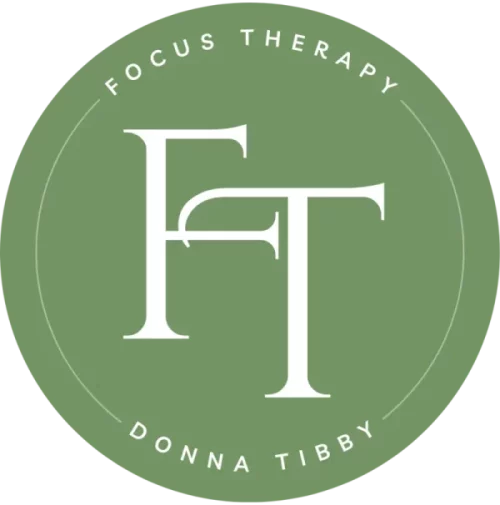Bereavement counselling helps individuals dealing with the intricacies of grief. It provides personalised strategies for clients to cope with feelings, adopt new routines, and find meaning after loss. There are different techniques that can help individuals with grief. In this blog we will explore bereavement counselling, the techniques used, and how it can help you in your time of need.
What Is Bereavement Counselling?
Bereavement counselling is a type of therapy that deals with overcoming the emotional, psychological, and physical challenges related to the loss of a loved one. Losing someone close may trigger a variety of emotions, such as depression, anger, guilt, and physical symptoms like tiredness or headaches. It allows individuals to process these feelings, understand their grief, and acquire strategies for coping and going forward.
This therapy is not to "fix" but to help individuals to incorporate the loss into their lives in a balanced manner. Grief is a natural response to loss. It helps people maintain connections with their loved ones in new ways, and reconstruct their lives. Such counselling is not only for people grieving the loss of a loved one but also assist individuals coping with other significant losses, such as divorce or job loss.
Benefits of Grief Counseling
- Understanding the Process of Grief: Counsellors assist people in understanding the process and complexities of grief so they can better cope with their emotions.
- Validation of Emotions: Most individuals feel alone in grief. So, counselling assures them that their emotions are valid and helps the person to overcome their emotions.
- Coping Mechanisms: Counsellors provide strategies to deal with overwhelming feelings like depression or anxiety, that usually come with grief.
- Improved Mental Well-being: Grief counselling can help avoid prolonged or complicated grief from turning into more serious mental health issues like major depression.
- Safe Space for Expression: It provides a nonjudgmental environment where individuals can openly share their thoughts and feelings.
- Restoration of Routine: Counselling assists individuals in restoring routines and regaining a sense of normalcy in their lives.
- Honouring the Deceased: It encourages individuals to preserve positive memories and find meaningful ways to honour their loved ones.
Bereavement Counseling Techniques
Bereavement counselling is a specialised form of therapy aimed at helping individuals cope with the emotional, psychological, and physical challenges associated with loss. Grief is a deeply personal experience, and counselling techniques are tailored to address the unique needs of each individual. Below are some of the most effective techniques used in bereavement counselling.
Cognitive Behavioral Therapy (CBT)
Cognitive Behavioural Therapy (CBT) is one of the common methods in bereavement counselling that identifies and changes negative thought patterns that can hinder the healing process.
CBT assists people in recognising negative thinking and replacing those thoughts with useful ones. Strategies like cognitive restructuring and reframing are utilised to challenge illogical beliefs. For example, a counsellor can guide a client in reframing thinking such as "I could have done more" into "I did the best I could within the situation." CBT also includes behavioural interventions that help motivate clients to act on things which bring meaning and pleasure to their lives.
Acceptance and Commitment Therapy (ACT)
Acceptance and Commitment Therapy (ACT) is focused on accepting sorrow instead of avoiding it. ACT puts people to test by asking them to accept the painful emotions as natural responses towards loss and to commit to action that contributes to their values and objectives.
Key components of ACT are mindfulness activities, cognitive defusion (stepping back from intrusive thoughts), and creating an "observing self" to observe emotions. Through creating psychological flexibility, ACT assists the client to progress while maintaining space for their grief. ACT is especially useful for chronic or complex grief.
Mindfulness
Mindfulness exercises form a key part of many grief counselling methods, such as ACT. Mindfulness involves developing awareness in the present moment, without judgement, so that people can experience their emotions completely.
In bereavement counselling, mindfulness techniques such as meditation, deep breathing exercises, and journaling are used to help clients manage overwhelming emotions. These practices reduce stress and promote emotional regulation, enabling clients to navigate the ups and downs of grief more effectively.
Talk Therapy
Talk therapy offers a secure environment for individuals to express their ideas and emotions regarding their loss. The method can be conducted individually or in groups, depending on the client's preference.
While participating in talk therapy sessions, counsellors will instruct clients to share memories about their late loved ones, discuss conflicting emotions, and explore ways to honour their loss while moving forward. Group therapy sessions provide further advantages by allowing people to connect with others having similar experiences and thereby decrease feelings of loneliness.
Complicated Grief Treatment
Complicated Grief Treatment (CGT) targets individuals who are suffering from prolonged and intense grief that interferes with daily life. CGT sessions focus on accepting the loss, coping with pain, reconnecting with others, and constructing future goals irrespective of the deceased. Storytelling about death and learning to live with reminders are key to CGT.
Traumatic Grief Therapy
Traumatic grief counselling deals with situations where grief is intensified by trauma. violent or sudden death. Traumatic grief therapy helps the client disentangle traumatic memories from grieving emotions.
Counsellors use exposure therapy to enable clients to face traumatic memories in a safe environment. They also concentrate on developing coping mechanisms and enhancing resilience through the gradual acceptance of the trauma and the loss.
Interpersonal Therapy
Interpersonal Therapy (IPT) focuses on enhancing interpersonal relationships and social support networks throughout the grieving process. Loss tends to interfere with interpersonal relationships, causing feelings of loneliness or conflict.
IPT sessions address how loss impacts relationships and help clients re-establish social relationships. Counsellors can help clients resolve conflict over the loss or establish relationships with supportive individuals. Through healthier relationships, IPT enhances emotional well-being and reduces loneliness.
Focus Therapy: Get Bereavement Support for Healing
As an integrative person-centred counsellor, I offer empathic care through bereavement. With extensive years of experience, I establish a safe, judgement-free space where you can feel at ease to progress, either virtually or in person.
As a member of BACP and NCPS, I maintain stringent ethical standards. If traditional counselling feels challenging, my workshops can offer interactive healing methods. We can navigate your feelings together, develop strength, and discover renewed meaning in life. My focus is on enabling you to find your own way towards healing and growth.
To learn more, reach out today or browse the website for further information.


